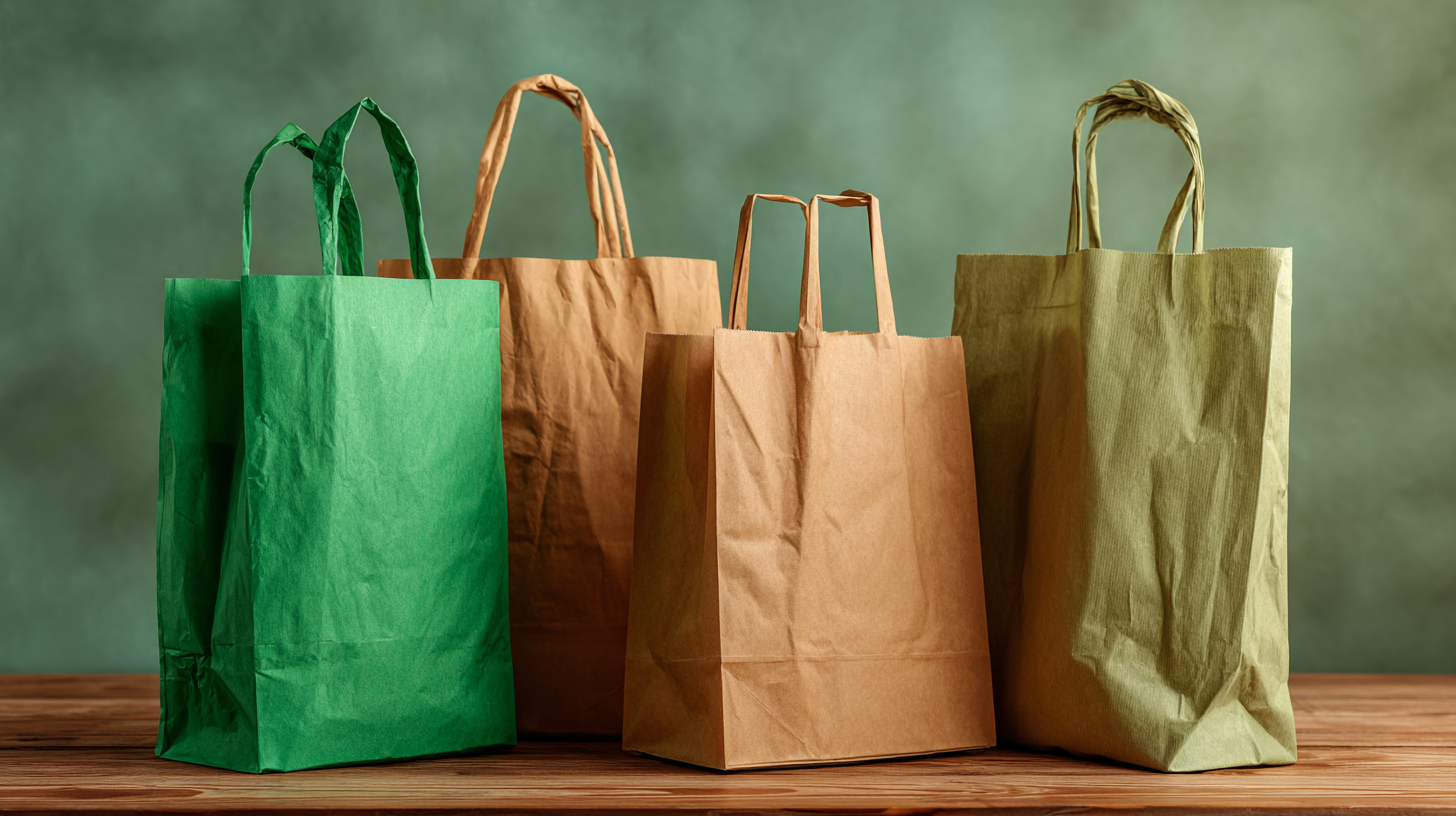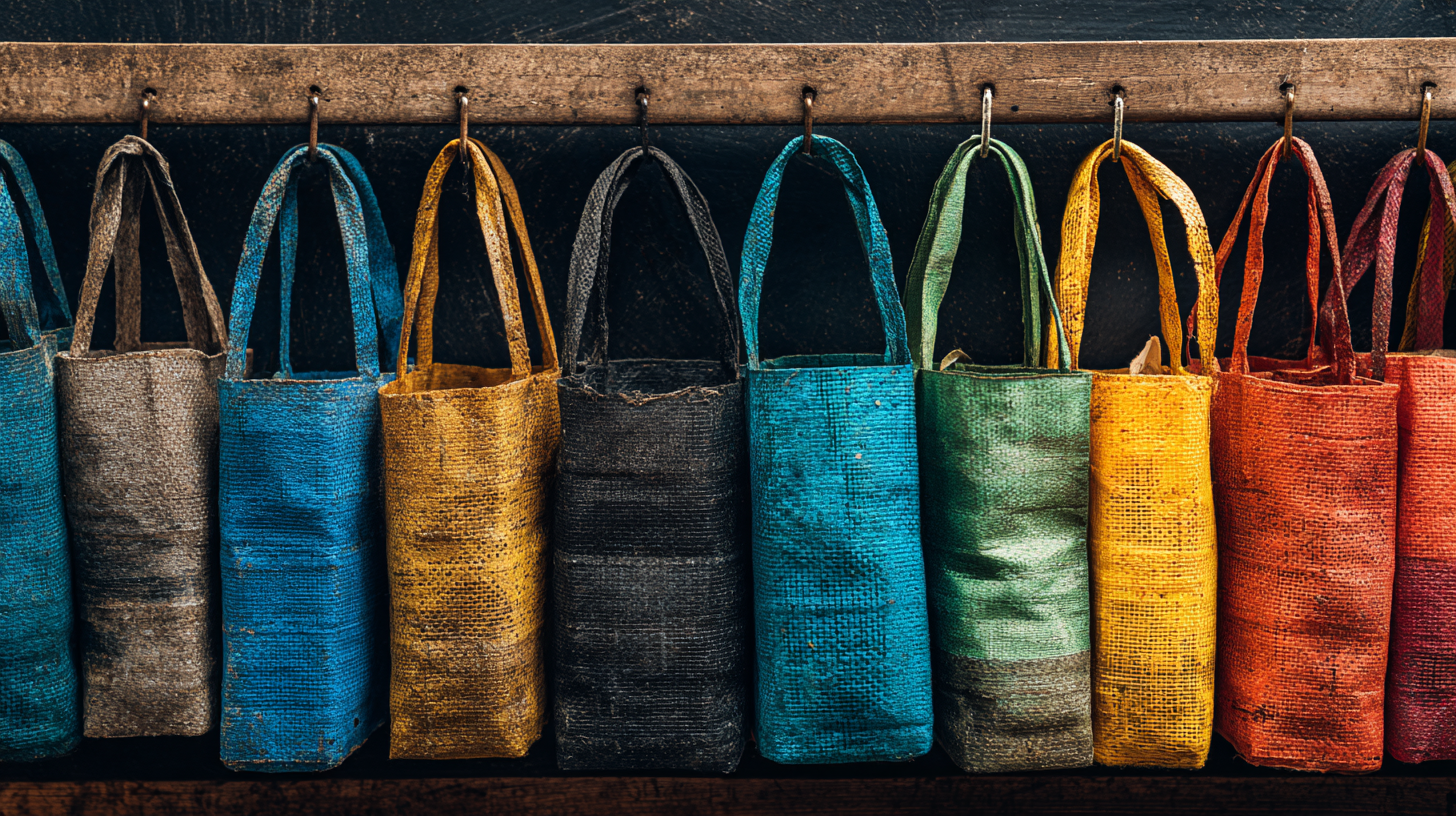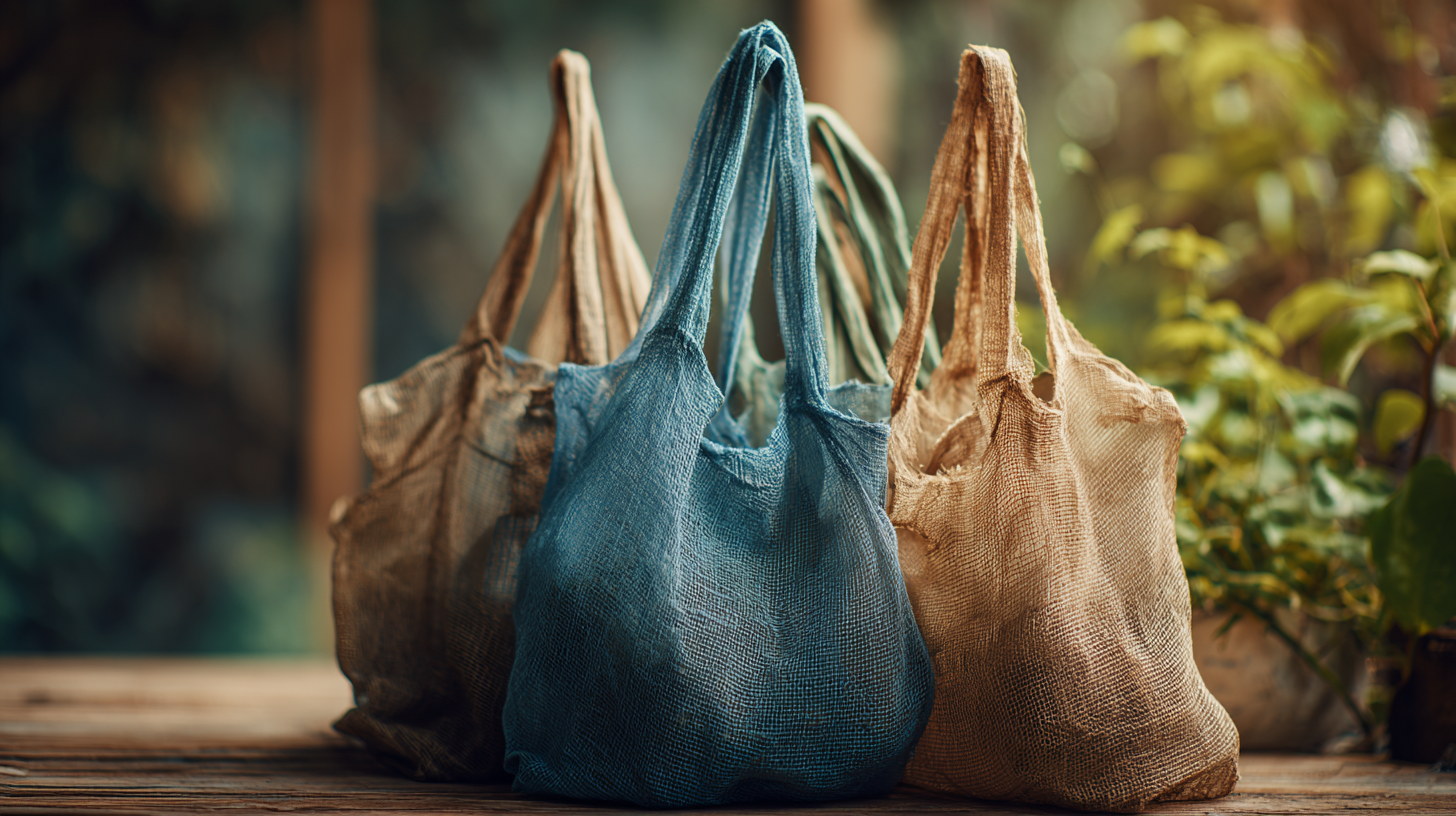As the global community shifts towards sustainable practices, the demand for eco-friendly products has surged, with a remarkable increase in the utilization of Recycled Bags. According to a recent report by Grand View Research, the global reusable bags market is projected to reach $25.3 billion by 2025, reflecting a compound annual growth rate (CAGR) of 5.0%. This significant growth highlights an increasing awareness of environmental issues, particularly concerning plastic waste. The introduction of Recycled Bags not only offers a solution to reduce single-use plastic but also plays a pivotal role in conserving resources and minimizing the environmental footprint. With consumers seeking innovative ways to embrace an eco-friendly lifestyle, making the switch to Recycled Bags is not just a trend; it is a necessary step towards a more sustainable future. In this blog, we will explore eight compelling reasons why choosing the best Recycled Bags is essential for individuals committed to making environmentally conscious choices.

Using recycled bags is a vital step towards an eco-friendly lifestyle, significantly impacting our environment. According to the Environmental Protection Agency (EPA), Americans generated about 292.4 million tons of trash in 2018, and plastic bags contributed a staggering 4.2 million tons to that figure. By choosing recycled bags, consumers can substantially reduce plastic waste, as these bags are often made from post-consumer materials that help divert waste from landfills. Moreover, studies indicate that reusable bags can reduce single-use plastic consumption by up to 90%, making them a critical tool in sustainable living.
When adopting recycled bags, there are ways to maximize their benefits. First, always keep a set of reusable bags in your car or near your shopping area. This simple tip ensures that you are prepared and less likely to forget them, thus preventing the use of plastic bags during last-minute purchases. Additionally, consider opting for bags made from a variety of recycled materials, such as cotton or polyesters made from recycled plastic bottles. This not only supports recycling efforts but also encourages manufacturers to create more sustainable products.
Finally, it's essential to care for your recycled bags properly. Washing them regularly and following care instructions can extend their lifespan, reducing the need for frequent replacements. The more you use and maintain your bags, the smaller your carbon footprint will be in the long run. By making these simple changes, you can significantly contribute to a more sustainable and eco-friendly lifestyle.
| Reason | Benefit | Environmental Impact | Cost Efficiency |
|---|---|---|---|
| Reduce Plastic Waste | Helps lessen the amount of plastic in landfills | Significantly reduces pollution | Saves money on single-use bags |
| Durability | Lasts longer than traditional plastic bags | Less frequent replacements needed | Reduces recurring costs |
| Versatility | Suitable for various uses (shopping, storage) | Promotes recycling initiatives | Multi-purpose saves on buying more bags |
| Promotes Sustainability | Supports eco-friendly practices | Fosters a sustainable lifestyle | Long-term savings on disposable products |
| Customizable Designs | Can be personalized for branding or gifts | Encourages consumers to choose eco-friendly options | Value addition for promotional items |
| Awareness and Education | Encourages discussions about environmental impact | Informs public about recycling | Investing in a healthier planet |
| Support for Local Economies | Often produced by local businesses | Reduces carbon footprint of transport | Supports economic growth in communities |
| Reduction of Carbon Footprint | Environmentally friendly materials reduce emissions | Contributes to climate change mitigation | Economical in the long run |
When selecting recycled bags for an eco-friendly lifestyle, understanding the import and export certifications for eco-friendly products is essential. These certifications not only ensure that the products meet specific environmental standards but also promote responsible sourcing and manufacturing processes. For instance, to gain certifications like
Global Recycled Standard (GRS) or OEKO-TEX, manufacturers must adhere to rigorous guidelines that minimize harm to the environment throughout the production cycle. This means that consumers can trust that their recycled bags are genuinely sustainable, providing peace of mind and promoting further eco-conscious choices.
Moreover, import and export certifications play a crucial role in the global market for eco-friendly products. They facilitate trade by establishing clear criteria that must be met for products to cross international borders. This means that brands committed to sustainability can reach wider audiences, while consumers can access a broader range of certified products that support environmental health. Understanding these certifications helps consumers make educated choices, ensuring that their purchases contribute positively to the planet while supporting a growing market for ethical products.

When it comes to making eco-conscious choices, selecting the best recycled bags is a significant step towards a sustainable lifestyle. Recycled bags are not just practical for shopping; they also play a vital role in reducing plastic waste that pollutes our environment. Opting for bags made from recycled materials can significantly lower the demand for new plastic production, which is a win for our planet.
Moreover, choosing recycled bags allows you to express your commitment to environmental responsibility. Many brands specialize in creating stylish and durable bags that are made from recycled sources, ensuring that you don’t have to sacrifice aesthetics for sustainability. Whether you opt for reusable shopping bags, backpacks, or tote bags, every small change contributes to a larger movement toward a more eco-friendly future. As consumers become more aware of their choices, the demand for innovative recycled products continues to grow, leading to a positive cycle of environmental impact.

Transitioning to an eco-friendly lifestyle is a rewarding journey, and one of the simplest yet impactful changes you can make is using recycled bags. Not only do they minimize plastic waste, but they also embody a commitment to sustainability that resonates with the growing global awareness of environmental issues. With initiatives like the LIFE Calls for Proposals 2024, which earmarks €571 million for conservation and environmental protection projects, the momentum for adopting green practices is stronger than ever. This presents an opportunity for individuals to contribute their ideas and take part in a broader movement towards a sustainable future.
In addition to using recycled bags, embracing a lifestyle that prioritizes sustainability involves rethinking everyday choices. Digitalization plays a key role in this shift, making it easier for consumers to access information on sustainable products and practices. By educating ourselves on topics like carbon credits and sustainable building materials, we can make informed decisions that support a circular economy. Each small step, such as opting for recycled bags or participating in local green initiatives, empowers us to be part of the solution in combating climate change and fostering a healthier planet for future generations.
The growing concern over plastic pollution has made the shift to recycled bags increasingly vital in our pursuit of an eco-friendly lifestyle. According to the World Economic Forum, by 2025, the amount of plastic in our oceans is expected to reach 250 million metric tons if current trends continue. Recycled bags offer a practical solution to mitigate this alarming statistic. By opting for bags made from recycled materials, consumers can significantly reduce the demand for new plastic production, which is a leading contributor to environmental degradation.
Furthermore, a report by the United Nations Environment Programme highlights that reducing single-use plastic items, such as traditional shopping bags, could decrease marine plastic pollution by up to 90%. The adoption of recycled bags can thus play a crucial role in this effort. For instance, using recycled bags instead of conventional plastic bags can cut down an individual’s plastic waste footprint by as much as 80% annually. This not only helps in protecting wildlife and marine life but also contributes to a healthier ecosystem for future generations. The ripple effect of every small change in our shopping habits can accumulate into significant strides toward a sustainable future.